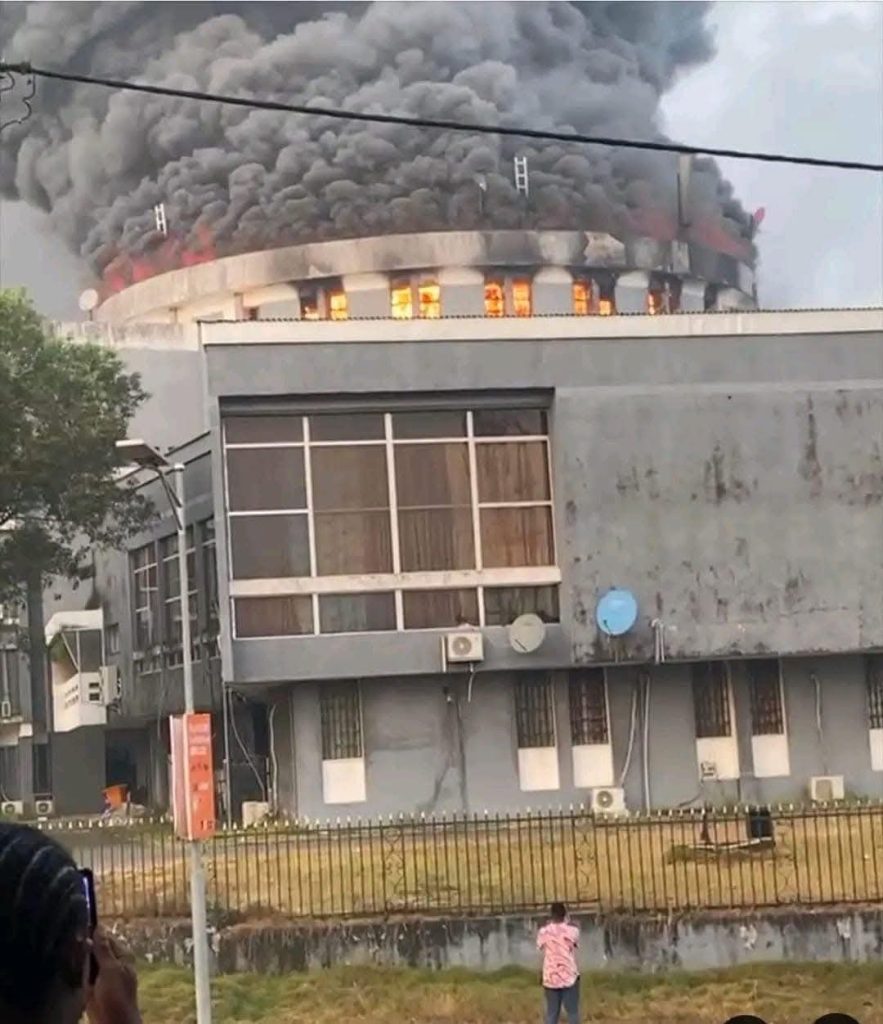The attempted arson of the Liberian Capitol Building serves as a stark reminder of the deep-seated societal issues plaguing the nation and provides an opportunity for concerned citizens to demand truth and accountability. The incident raises immediate questions about the security lapse that allowed the suspects to breach the Capitol Building despite the presence of Liberian National Police (LNP) officers. This raises suspicions of complicity or incompetence within the security apparatus, further eroding public trust in the government. The subsequent assault on the whistleblower, a representative who wasn’t even present in the building at the time, only amplifies the perception of a government attempting to suppress dissent and avoid scrutiny. This heavy-handed response not only undermines the government’s credibility but also demonstrates a blatant disregard for the rule of law.
The government’s response to the incident, marked by a lack of transparency and a tendency to silence dissent, underscores the critical need for systemic change. The beating of the whistleblower exemplifies a pattern of intimidation and violence against those who dare to challenge the status quo. This chilling effect discourages citizens from speaking out against corruption and injustice, perpetuating a cycle of impunity. The government’s actions, rather than addressing the root causes of the arson attempt, seem focused on suppressing information and deflecting blame. Such behavior only fuels public distrust and creates a fertile ground for further unrest. The people are not oblivious to these tactics and are increasingly demanding accountability and transparency.
The incident highlights the urgent need for adherence to the rule of law, a principle that appears to be selectively applied, if at all, by those in power. While the government’s response has been characterized by violence and obfuscation, the Liberian people are demonstrating a commitment to peaceful and lawful means of seeking redress. The religious leaders’ appeal to the Supreme Court to uphold the rule of law is a testament to this commitment. Their call for the court to prioritize the sanctity of life and the principles of service underscores the moral imperative to address the underlying issues driving the nation’s unrest. This plea for justice through legal channels stands in stark contrast to the government’s apparent disregard for due process and its tendency towards violence and intimidation.
The financial implications of repairing the Capitol Building further expose the government’s mismanagement and misplaced priorities. The estimated $2 million required for repairs represents a significant burden on a nation grappling with numerous economic challenges. This cost, compounded by allegations of legislative misuse of taxpayer funds, including lavish hotel stays, underscores the urgent need for fiscal responsibility and transparency. The irony of legislators allegedly squandering public resources while the nation struggles to fund essential services is not lost on the Liberian people. This blatant disregard for the public good further fuels their discontent and strengthens their resolve to demand accountability.
The ongoing awareness-raising efforts by concerned citizens demonstrate a commitment to peaceful, lawful change. Their focus on upholding the rule of law stands in stark contrast to the government’s apparent reliance on violence and intimidation. By advocating for a fair and enduring electoral system, these citizens are working to create a pathway for meaningful change. They understand that a just and equitable electoral process is essential for selecting leaders with integrity and a genuine commitment to serving the people. This grassroots movement, rooted in the principles of non-violence and respect for the law, offers a powerful alternative to the destructive cycle of violence and impunity that has plagued the nation.
The incident at the Capitol Building serves as a crucial turning point for Liberia. It presents an opportunity for the nation to confront its deep-seated problems and embark on a path toward genuine reform. The people’s commitment to peaceful, lawful action, contrasted with the government’s apparent disregard for the rule of law, highlights the fundamental divide between the governed and those who govern. The call for transparency, accountability, and a just electoral system represents a powerful demand for a more equitable and prosperous future. The incident underscores the critical need for a fundamental shift in governance, one that prioritizes the needs of the people and upholds the principles of justice and the rule of law. The future of Liberia hinges on whether the government heeds these calls for change or continues down a path of repression and impunity.


